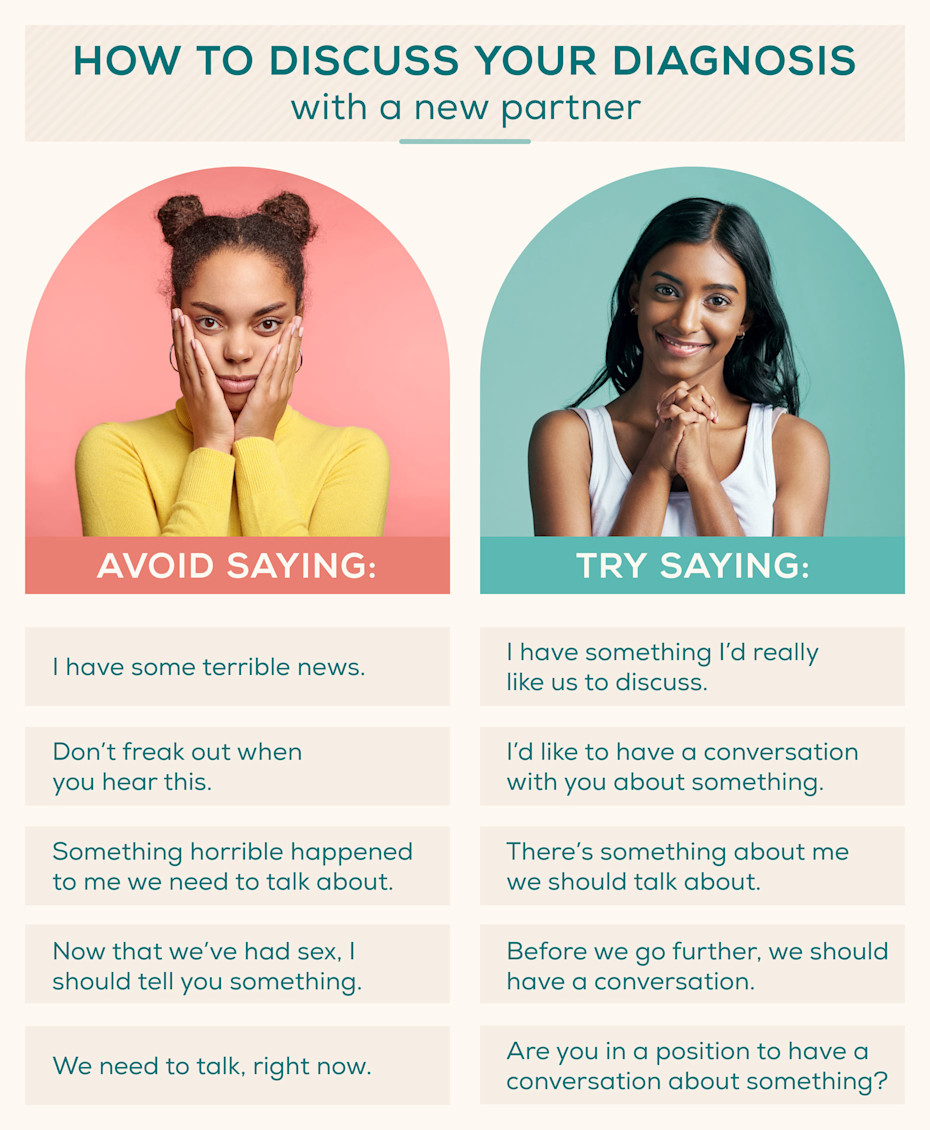In recent years, sexually transmitted infections (STIs) among young people ages 18-24 have reached a record high. As you can imagine, more people with STIs means more conversations. Individuals inflicted with STIs can live everyday lives with medication, regular testing, and the support of loved ones around them.
If you are currently dating with an STD or know someone who has one, you may understand how stressful and nerve-wracking it can be to put yourself out there with relationships. However, it doesn’t have to be hard to communicate about your condition with a new potential partner if you know how to discuss it properly.
Bringing Up Your STI on A Date
STIs are usually either chronic or curable. Therefore, recognizing the differences between these categories can affect your relationship with someone new and how you should open up the conversation. A chronic condition is an STI that stays with you as you age, like HIV, herpes, and some kinds of hepatitis. If you have a chronic illness, you should learn the ins and outs of living with this condition to protect yourself and others.
Curable STIs can be treated with medication and can eventually go away. Popular curable STIs include chlamydia, syphilis, and gonorrhea. It is recommended not to engage in sexual acts until you are STI-free and can no longer transmit this to others.
With A New Love Interest
Before engaging in sexual acts with someone new, discuss your STI history and status. Talk about these things to ensure the safety of your partner and yourself. Having this conversation will open up the floor for health and wellness preferences. It can even show similarities or differences between your and your partner’s priorities.
Put yourself in your new partner’s shoes before telling them the news. Try to be compassionate and understanding of a potential reaction that they may have. You want to be as transparent and honest as possible to avoid any misunderstandings or unanswered questions they may have.
With An Existing Partner
Because discussing your STI status with an existing partner may present challenges that a new partner may not, you should be careful to share this information. It may surprise your partner that you have not stated these details earlier in your relationship.
As you would a new partner, be direct and intentional with your language. Being sympathetic and feeling like you are trying to communicate openly with your partner is essential. This conversation can deepen your relationship and the bond you share with transparency.
When to Break the News
It may feel like there is no right time to tell your partner you have an STI. You may even feel anxious and worried that your partner won’t look at you the same after telling them.
You should tell your partner before your first sexual experience together. With this information in mind, you also want to tell your partner when you feel comfortable, safe, and accepted. Ensure you are in a secure environment and allow your partner to listen to your feelings.
How to Have Safer Sex
After discussing your STI status with your partner, ensure both the safety of that person and yourself during intimacy. Being responsible and using protection will be worthwhile in the long run. There is no method of sexual protection that is 100% safe, but there are steps that you can take to avoid transmission of the STI.
- Wear protection: Male and female condoms and latex contraceptives help prevent the spread of countless STIs. As many STIs are spread through genital fluids, condoms may reduce the chances of cross-contamination.
- Get tested: If you suspect you have an STI or have engaged in sexual behavior with someone who has tested positive for STIs, it is an intelligent decision to get tested. Some conditions can become dangerous if left untreated.
- Be honest: Be open and communicative with your partner about your sexual history and your partners with STIs. This will limit any future issues and dishonesty. You will feel like a weight has been lifted off your chest when you come clean about your condition.
What if My Partner Has an STI?
These days, STIs have become extremely common in the young dating pool, and unfortunately, a person you have come in contact with has likely had experiences with STIs. Whether they have had a previous relationship partner with an STI or have had an STI scare themselves, it is nothing out of the ordinary.
If your partner opens up about their diagnosis, it is essential to stay calm and collected despite the emotions you may be feeling. They are probably very vulnerable in opening up to you about their condition. While you may feel uneasy at first, keep the things in mind about that person that drew you toward them in the first place.
How to Cheer Yourself Up After a Diagnosis
Diagnosing a chronic condition or curable STI can be upsetting and uncomfortable. Thankfully, you are not alone in feeling this way; there are many ways to see the bright side. Once you feel confident, putting yourself out there and exploring new relationships might be a good idea.
- Download dating apps: Numerous online dating apps and websites cater to people with lifelong STIs like herpes or HIV/AIDS. Poste and HSV Singles are platforms that have great success rates. By signing up for one of these websites, you might be able to meet someone with whom you connect.
- Put mental health first: It’s easy to get down on yourself about a new STI diagnosis. Keep motivating reminders on your phone daily and say words of affirmation in the morning when you look in the mirror.
- Open dialogue with your partner: Opening up about your STI is one of the trickiest parts of the conversation. From here, be available to answer your partner’s concerns or questions. You’ll both benefit from productive discussions.
If you are worried about telling your partner about your STI or are trying to reenter the dating world with a diagnosis, communication and honesty are always the best policy. For more information about dating with an STI, check out this infographic from EverlyWell.




